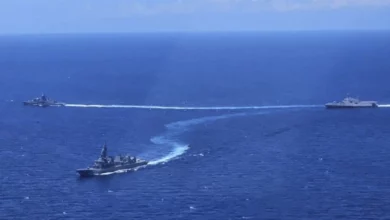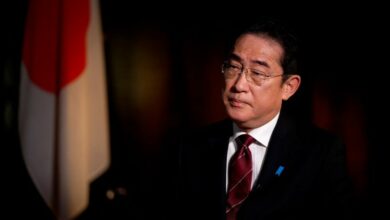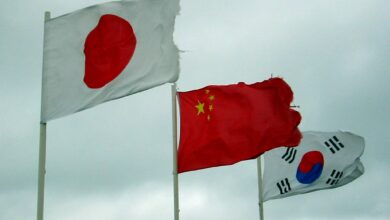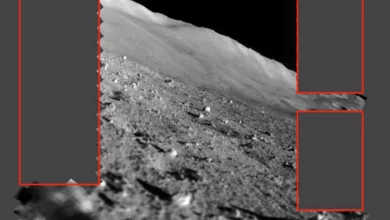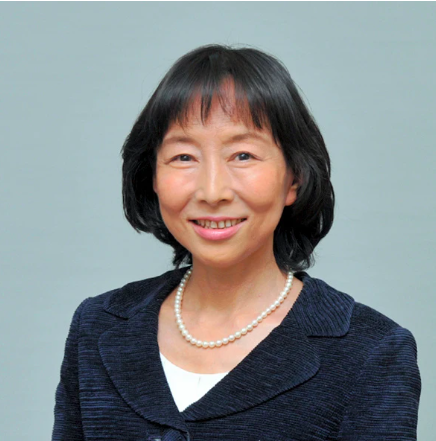
Japan sees Egypt as the gateway to Africa, and hopes in turn that Cairo will be the gateway to Tokyo towards Africa, the Spokesperson for the Japanese Foreign Ministry, Ono Hikariko, said.
Relations between Egypt and Japan have been strong throughout history and Japan is working to upgrade it into a truly strategic partnership, she added.
Hikariko sees the Egyptian economy as growing and confirmed her confidence in its capabilities, advising Japanese companies to invest in Egypt.
During the interview, Hikariko assured that her country is concerned about the situation in Sudan, and appreciates Egypt’s role in reducing escalation in Palestine.
Q: How do you see relations between Cairo and Tokyo under President Abdel Fattah al-Sisi and Prime Minister Fumio Kishida?
A: Relations between Egypt and Japan have been strong throughout history, and Japanese Prime Minister Fumio Kishida chose to visit Cairo as part of a business trip to a number of African countries, including Ghana, Kenya, and Mozambique.
Egypt has a pivotal role in Africa and the Middle East, and Tokyo is working to develop this strong bilateral relation to the stage of strategic partnership. I see that President Abdel Fattah al-Sisi is very active. We know that he wakes up early, and he continues to work for long periods.
Q: What about economic cooperation between the two countries, and what are the most important investment fields?
A: We see the Egyptian economy achieving growth and we trust its capabilities despite the global economic crises. Therefore, we advise Japanese companies to invest in Egypt, as the Egyptian government works to overcome the problems of investors.
Q: What is the significance of the strategic partnership between the two countries from your point of view?
A: Japan is working to develop relations of cooperation into a strategic partnership, which is reflected in cooperation in various fields, whether in the construction of the metro, or the field of education. Egypt has 51 Japanese schools, in addition to a Japanese university.
We also see the Suez Canal as an important attraction, which prompts us to invite Japanese businessmen to invest in Egypt due to the importance of the initiatives offered by Cairo in the public and private sectors.
Q: What about cooperation in various fields?
A: Japan cooperates with Egypt in many fields, whether in energy projects to encourage investments in this field, or tourism through the construction of the Grand Egyptian Museum. Japan sees Egypt as the gateway to Africa, and we also hope that Cairo will be the gateway to Tokyo towards Africa.
The Japanese Prime Minister affirmed the need to strengthen the UN as a whole, including the reform of the Security Council, and the preservation and strengthening of the Treaty on the Non-Proliferation of Nuclear Weapons.
Q: How do you see the situation in Sudan?
A: We are concerned about the situation in Sudan.
Japanese Prime Minister Fumio Kishida discussed with President Abdel Fattah al-Sisi the situation in Khartoum, as well as the need to establish peace and stability in the Middle East and Africa.
Japan and Egypt, which enjoys close relations with Khartoum, agreed to calm the situation in order to resume the democratic process and the process of transition to civil rule in Sudan as soon as possible.
Japan plans to send ambassador M. Shinsuke Shimizu, the Japanese special envoy to the Horn of Africa, to the concerned countries, including Egypt, as Japan aims to provide emergency humanitarian aid to refugees in neighboring countries and internally displaced people.
In the same context, we express our constant concern about the escalation at times between the Palestinians and the Israelis. Therefore, we appreciate Egypt’s role in reducing the escalation and the efforts of President al-Sisi in this regard, as we follow the situation in Palestine, and we follow the developments in Syria.
Q: Domestically, does the Kishida cabinet have a plan to help the Japanese people after the coronavirus pandemic amid the global economic crises?
A: Yes, we are working to provide assistance to the people in light of the global economic crises, amid the rise in the average life expectancy and the decline in youth demographics.
The government is working to increase and raise wages for generations between 20 and 30 years old, in addition to providing job opportunities.
Q: We have followed up the murder of former Prime Minister Shinzo Abe, and throwing a bomb at current Prime Minister Kishida, what is your interpretation of this type of incidents?
A: Former Prime Minister Shinzo Abe was assassinated on July 8, 2022, while delivering a campaign speech. Regarding current Prime Minister Fumio Kishida, that incident was not organized – someone threw a smoke bomb when he delivered the election speech on April 15.
Both incidents are individual acts and are not similar.
The security authorities are investigating the reasons for the attack and the motives of the accused.
Q: Japan declared support for Ukraine against Russia, following the war launched by Moscow in February 2022. Does this not affect the bilateral negotiations over the Kuril Islands?
A: Russia carried out aggression against Ukraine, as it violated the principles of the UN and international law. We are governed by international conventions, so what Russia did is considered military interference in the affairs of another country, and indeed the war affected the negotiations on the islands.
As soon as the Russian aggression against Ukraine started, Tokyo imposed sanctions on Russia, as is the case with the G7 countries. The sanctions are linked to the ongoing war.
Q: But Russia has expressed fears of Ukraine’s accession to the NATO, as it represents a clear threat to its national security?
A: We believe that unilateral change and by force is unacceptable, whether by Russia in Ukraine or anywhere else, so we work to support international law and a free and open world order.
Q: Like Russia, Japan also has a dispute with South Korea over the Takeshima Islands or as South Korea calls it Dokdo islands. So how do you see relations with Seoul?
A: Relations between Japan and South Korea are firm, and South Korean President Yoon Suk Yeol plans to visit Tokyo, as Japanese Prime Minister Fumio Kishida invited him to participate in the G7 summit, which will be held from May 19 to 21.
So bilateral relations are positive because it is a neighboring country, and both Tokyo and Seoul joined the alliance with the US against North Korea’s threats.
Q: In the context of talking about neighboring countries, Beijing fears Tokyo’s increased spending on armaments, what is your comment?
A: Japan is a democratic country, and the budget of the Japanese Ministry of Defense is known to the Japanese people and all countries of the world. The budget is transparent, and has been approved by Parliament and the majority of the government, but China is working to increase spending on armaments, through a huge unannounced budget.
Despite that, the dialogue with China is open and established, as we are keen on relations with neighboring countries.
The Japanese shipping line project does not oppose the Chinese Silk Road project, on the contrary, both have a benefit, and the two projects do not intersect with each other.

